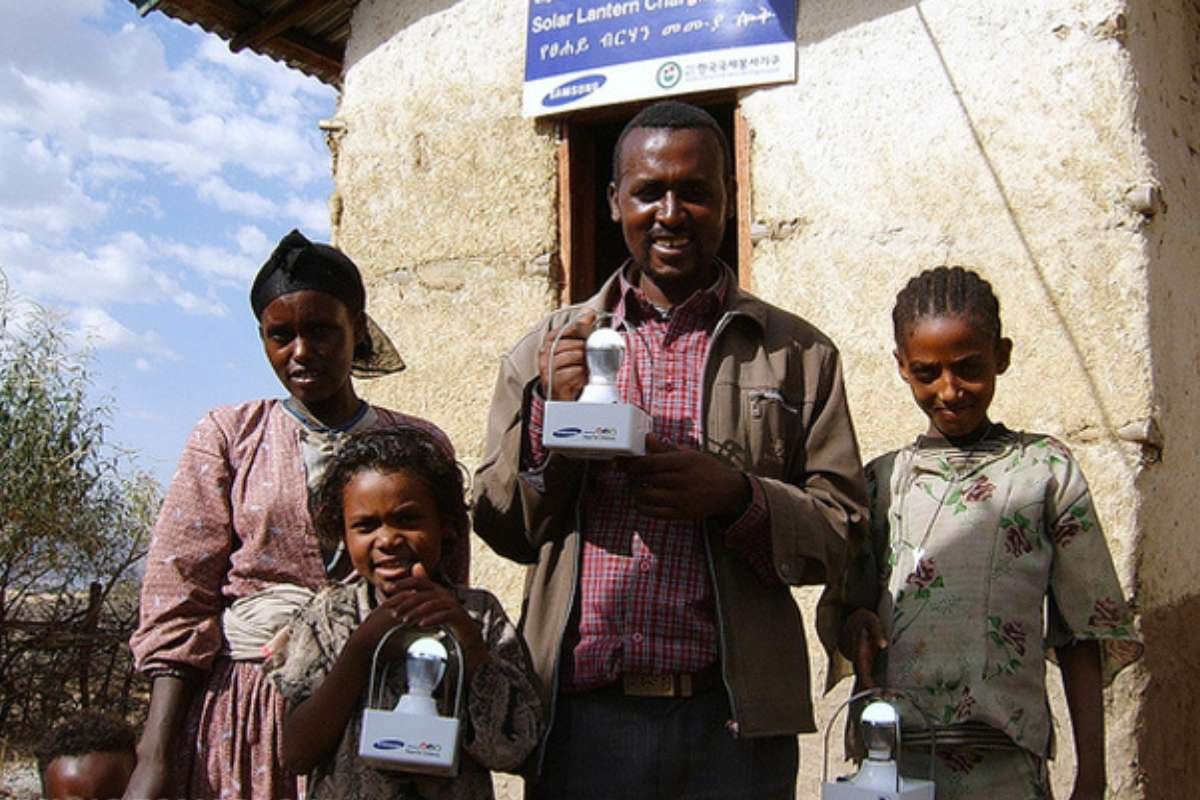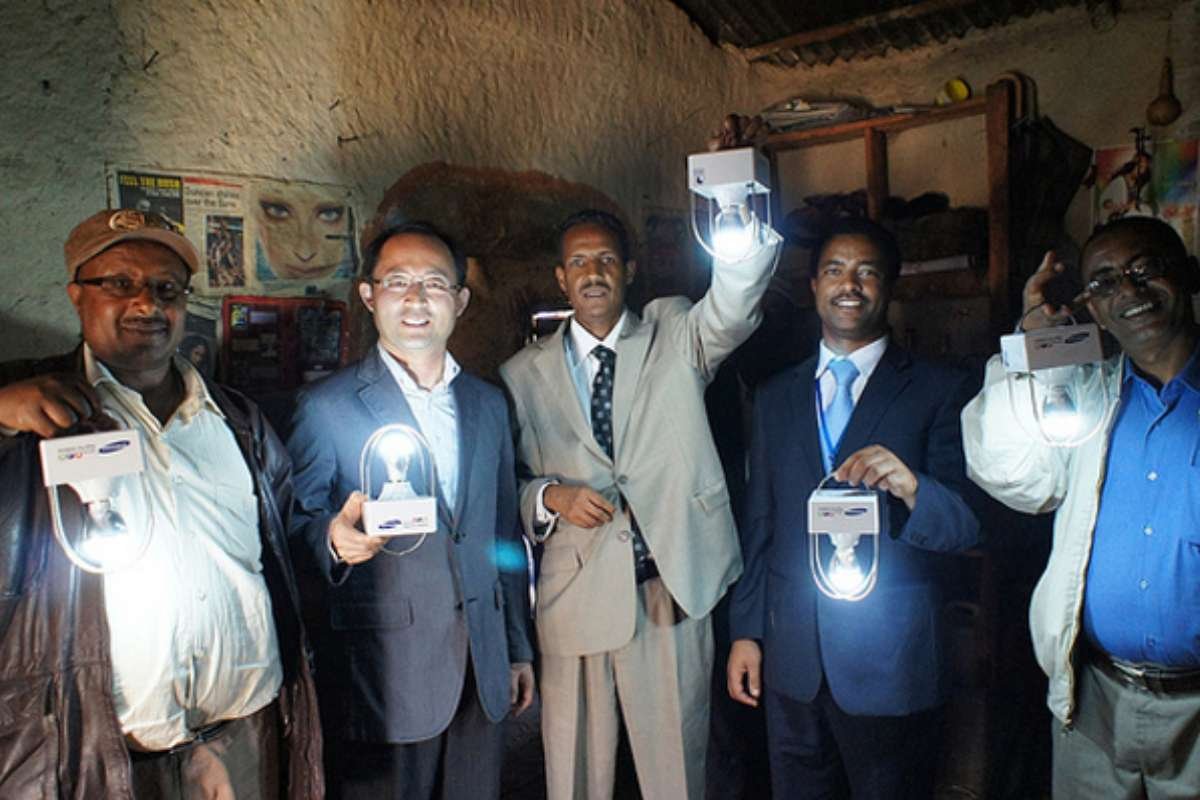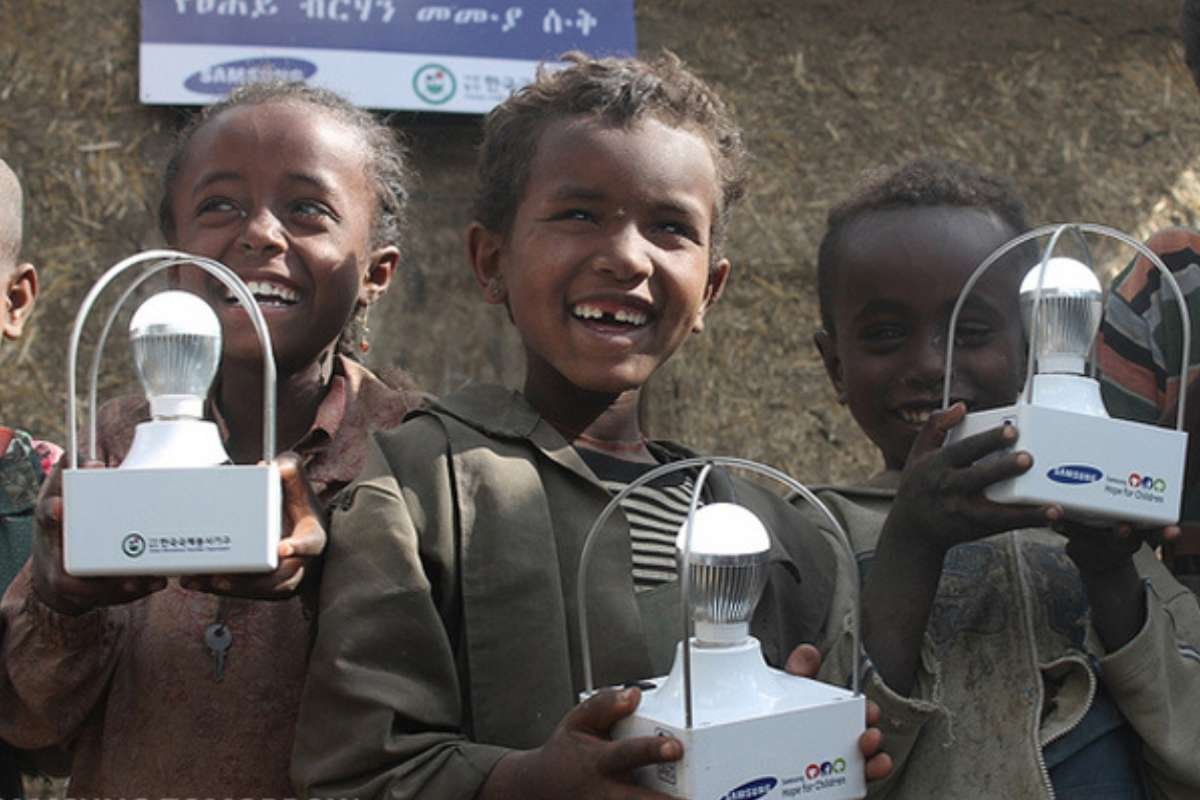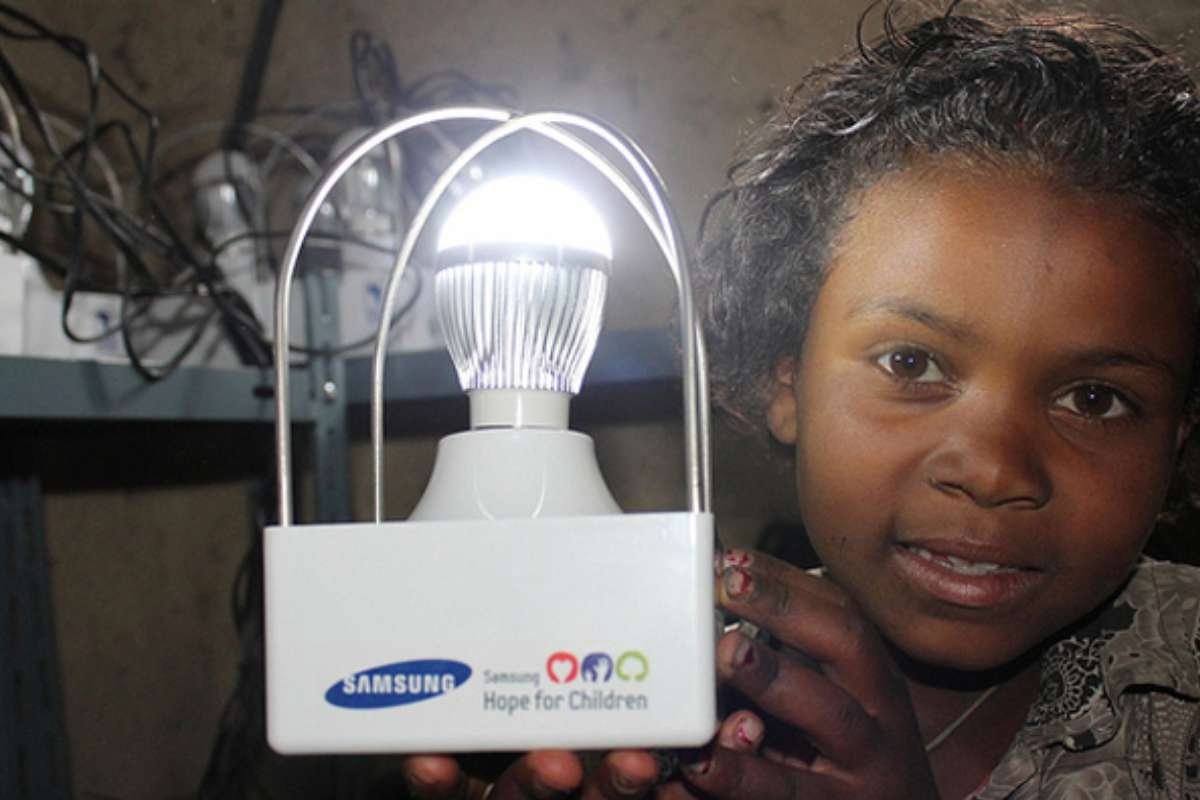Samsung is one of the leading electronics company the world, derived from a trading company established in South Korea in 1938 by Lee Byung-chul. The company started by exporting groceries; Samsung expanded into textiles and insurance, and it began electronics production in the 1960s. Today, Samsung is renowned for its innovations in smartphones, televisions, home appliances, and semiconductor chips. The company is strongly committed to corporate social responsibility, supporting education, healthcare, and community development initiatives globally.
This company is a global leader in technology and electronics and integrates CSR into its core business. The company mainly focuses on creating the most shared value by aligning corporate goals with the group’s requirements. One of Samsung’s notable CSR initiatives is the “Bringing Light to Ethiopia” campaign, which aims to address energy poverty through sustainable solar solutions.
The Campaign: Bringing Light to Ethiopia
Samsung’s “Bringing Light to Ethiopia” campaign represents a significant corporate social responsibility (CSR) initiative aimed at addressing energy poverty in rural Ethiopia. The campaign focuses on leveraging solar-powered solutions to provide clean and reliable electricity to communities that lack access to the national grid. Through this initiative, Samsung aims to enhance education, improve healthcare, empower communities, and nurture sustainable development in Ethiopia.
The motive of the campaign
The motive behind Samsung’s “Bringing Light to Ethiopia” campaign is to reduce poverty and its associated challenges in rural areas. Many Ethiopian communities face simple limitations in accessing electricity, which obstructs socio-economic development, education, and healthcare. It also introduced solar-powered solutions, aiming to empower these communities with sustainable energy sources that enhance quality of life and support development goals.

Key Elements of the Campaign
1. Solar-Powered Solutions
Solar solutions are key in the campaign: solar lights for households, solar systems for community halls, and solar power for schools. These technologies offer dependable clarity and connectivity while contributing to crucial sectors such as healthcare for the worldwide populace in off-grid regions.
2. Education Enhancement
This is a mission to improve education outcomes since Samsung plans to offer schools lighting through solar power. It allows the students to study during the evening hours, use computers or internet sources, and engage in social activities that require electricity. A better learning environment enhances learners’ traffic, performance, and chances of skill achievement.
3. Healthcare Improvement
Electricity improves the delivery of healthcare by being able to power medical equipment, provide light for the facilities, and support the functionality of refrigeration for vaccines as well as medicine. The application of solar technology by Samsung helps to expand and develop health centers’ services, raise the quality of patient care, and thus contribute to the overall positive change in the Ethiopian rural population’s health.
Implementation Strategies
1. Community Engagement

Samsung interacts with the local communities during the entire campaign period with key stakeholders, and local organizations like government and non-governmental organizations, and chiefs. Community involvement ensures that projects are culturally relevant to the community’s needs, and it enables them to manage and benefit from solar solutions.
2. Capacity Building
The management program in the campaign focuses on training local technicians and citizens in the installation, management, and business aspects of solar technology. Samsung’s approach to sustainable solar projects involves empowering local communities with the knowledge and skills needed to manage these projects independently. Additionally, Samsung provides the necessary resources and funding to support these initiatives, ensuring that the local communities are well-equipped to handle and sustain the solar technology projects.
3. Public-Private Partnerships (PPPs)
Samsung supports collaborations between itself and different community facilities to improve the effectiveness and extend the reach of CSR undertakings. These partnerships help in the mobilization of resources and the exchange of knowledge. Advocating for the use of renewable energy for the development of Ethiopia.
Samsung Corporate Social Responsibility – Bringing Light to Ethiopia Improves Life for Youth
Impact and Benefits of Campaign
1. Educational advancement
Samsung’s “Bringing Light to Ethiopia” campaign has significantly improved education in rural areas. The school is equipped with solar-powered lighting, which extends study hours and also improves student performance. Access to digital learning resources has expanded and prepared students for future opportunities.
2. Well-being and health
Healthcare is improved, especially in isolated locations without consistent access to electricity. These days, solar-powered medical facilities can run smoothly and offer necessary services, including protection, emergency medical care, and maternity care. Better health and lower mortality rates in the communities that benefit from improved healthcare facilities.
3. Financial Empowerment
The company boosts local economies and generates jobs by encouraging entrepreneurship and economic activity with solar-powered solutions. The hours of operation can improve the efficiency of small businesses, while solar-powered irrigation systems can improve agricultural yield.

Conclusion
Samsung’s “Bringing Light to Ethiopia” is an example of how corporate social responsibility (CSR) can be revolutionary in addressing global issues and advancing development. Samsung allows communities to boost healthcare services, expand educational possibilities, and promote economic growth. Samsung is still dedicated to developing its CSR programs, promoting technical innovation, and having a good worldwide social impact.
Samsung’s CSR initiatives in Ethiopia show a devotion to social impact and corporate responsibility, establishing a standard for the technology sector’s contribution to global development.










